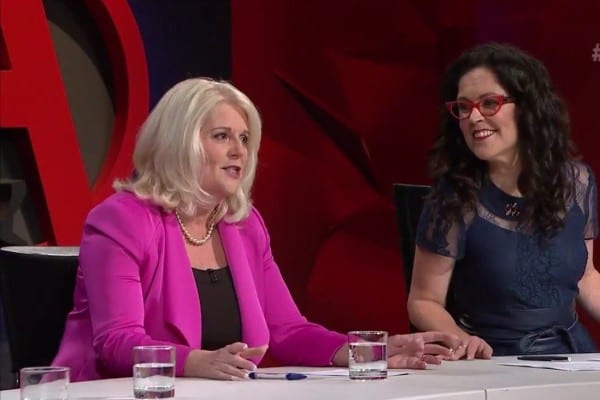“I would discourage a male in the current environment for taking on one-on-one mentoring,” she said. “I think that there is a general concern from a lot of men… about how do they protect themselves from an accusation about their behaviour and their conduct. I think that that is actually something men should be very conscious of.”
She said men should look to mentor women in public environments where there are other people around, such as cafes, instead of locations such as hotels in the aftermath of the #MeToo movement.
Avoiding hotel rooms is not bad advice. It is difficult to envisage many professional scenarios which would be compromised by virtue of not taking place in the confines of a private room.
Indeed, it is hard to imagine the shocking story Andrews revealed on the program happening in an open space.
“A male in the meeting thought it was appropriate for him to make gestures as if he was going to remove his trousers … and at that point, I called it as inappropriate behaviour, and I left the meeting,” Andrews said. “The behaviour needed to be called. It wasn’t funny, it wasn’t smart – it was inappropriate. And I think that women need to start calling out that behaviour as and when it happens.”
She’s right but the idea of men avoiding mentoring women one on one altogether is absurd.
For starters it reinforces the myth that false allegations of misconduct are prolific. They’re not. In Australia 19% of women have been sexually harassed at work and only 1 in 5 make a complaint. Of those 18.2% resign with no job to go to afterwards.
Sexual harassment is underreported and false allegations are rare. Despite this four in ten Australians think sexual assault accusations are a way of getting back at men, according to the fourth National Community Attitudes Survey.
Men are not being tarred indiscriminately with the brush of #MeToo.
Ultimately, the best way to avoid an allegation of misconduct is to not engage in misconduct. Behave appropriately and the chances of being accused of misconduct will shrink. Dramatically.
I’m yet to find more sage advice to any man – or woman – wanting to avoid allegations of misconduct than that shared by Pulitzer-prize winning journalist Ronan Farrow last year:
‘The general rule of just be respectful is enough. Be normal and rational and treat people as you want to be treated’.
It really is that simple.
If staying professional and respectful with a female colleague is beyond a person’s capacity then it is difficult to imagine how their capacity is sufficient to qualify them for a position in any workplace.
The apparently vexed subject of men mentoring women in the post-#MeToo world is not new.
In June last year a report released by the online mentoring platform, Art of Mentoring, showed that the proportion of Australian men who were uncomfortable about working alone with a woman had increased to 15% from just 7% as a result of #MeToo.
It matched findings from a study commissioned by Sheryl Sandberg’s Lean In organisation in the US to measure the extent of men’s withdrawal from working with women.
Almost 50% more senior male managers in America, and 40% more men overall, feel uncomfortable participating in common workplace activities with women, than prior to the public reports.
This is deeply problematic because of the potential it presents to further entrench segregation in workplaces between men and women which is, literally, the last thing women need. The only thing men need to be careful of when it comes to mentoring women is behaving appropriately. It’s that simple.


